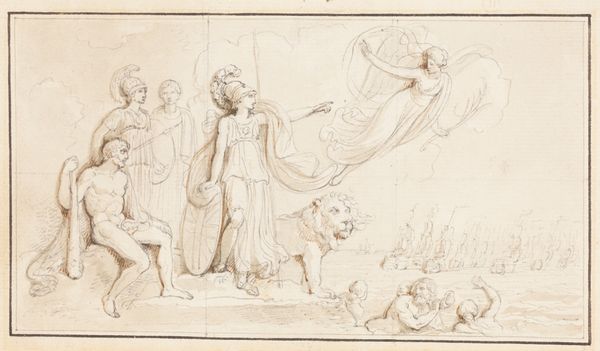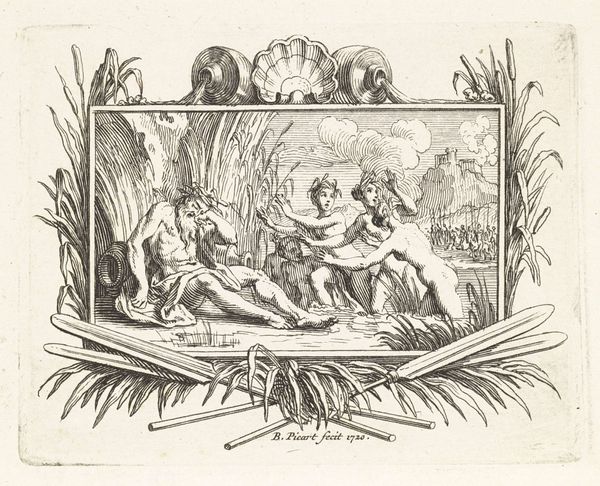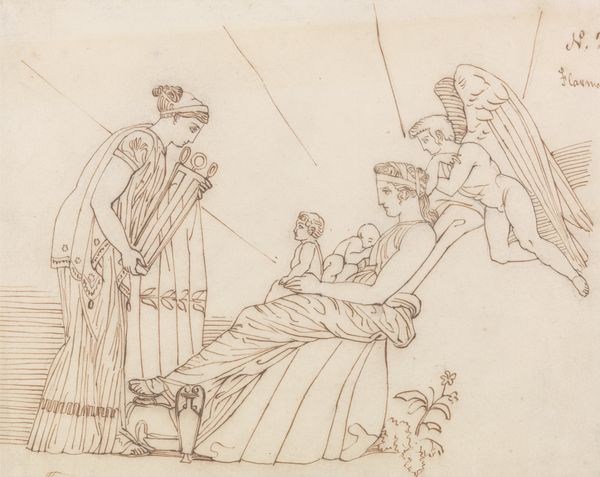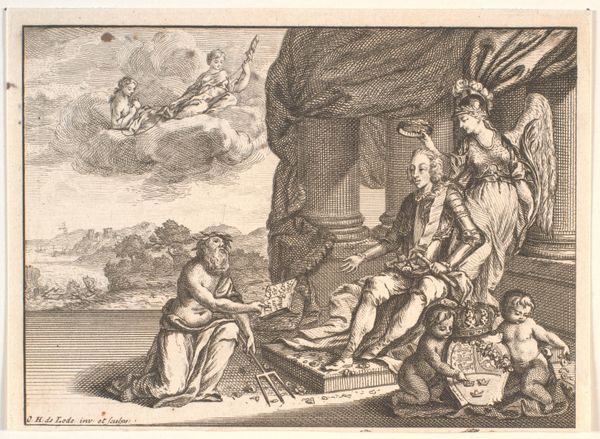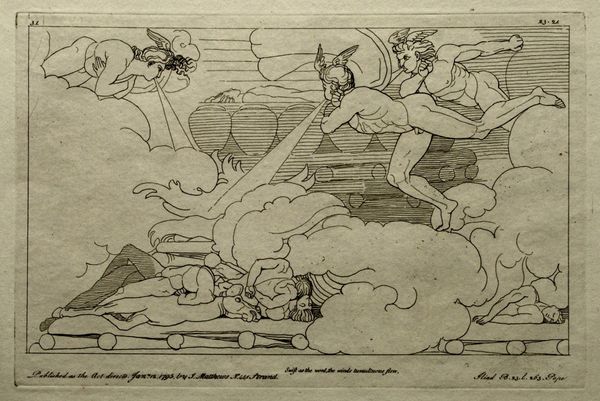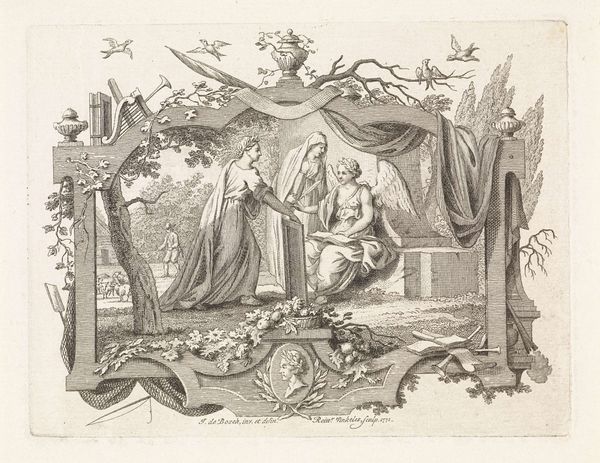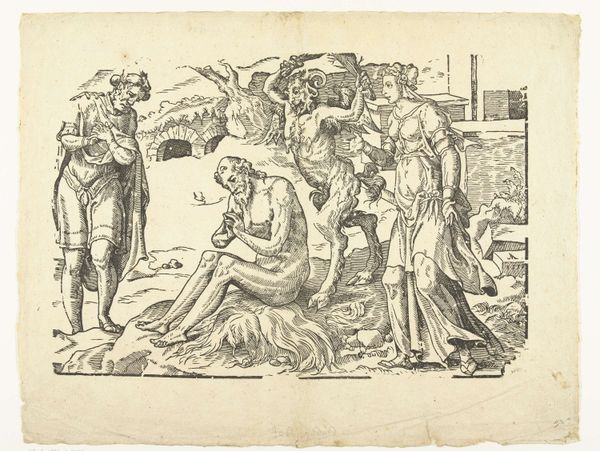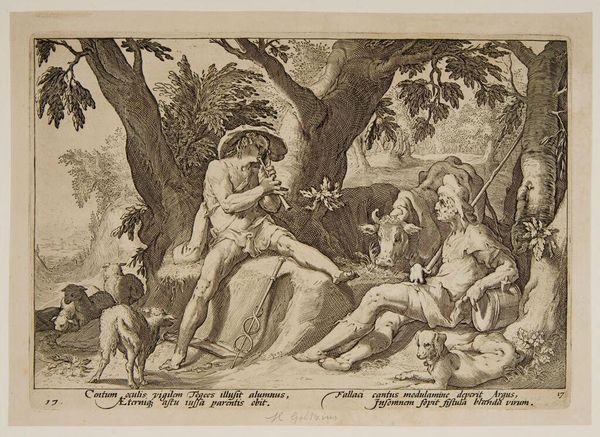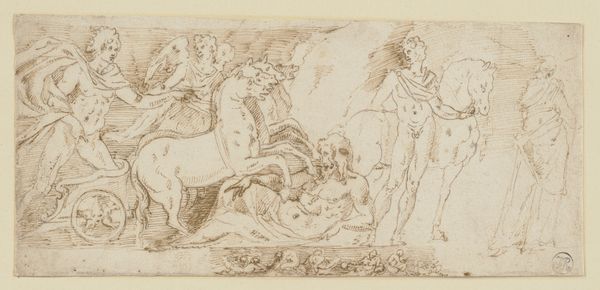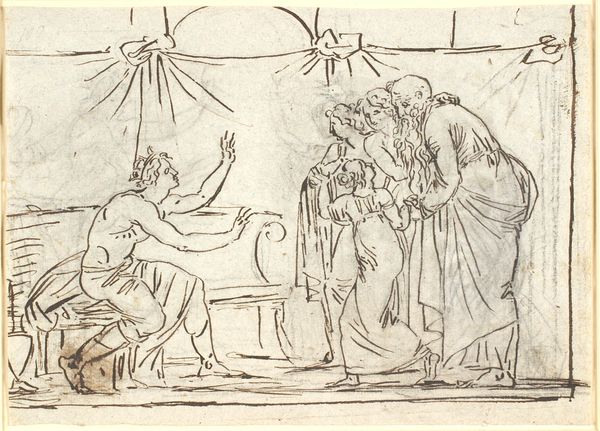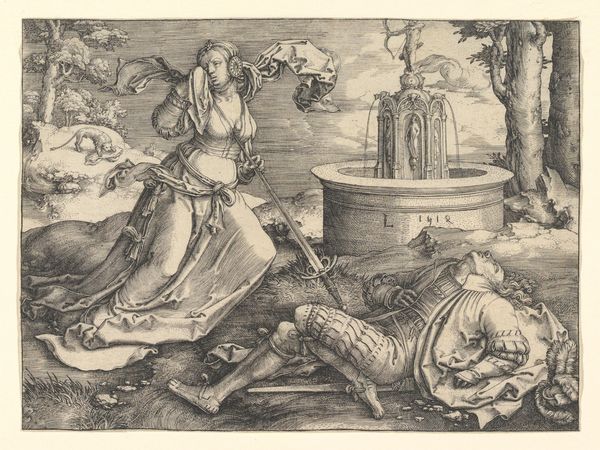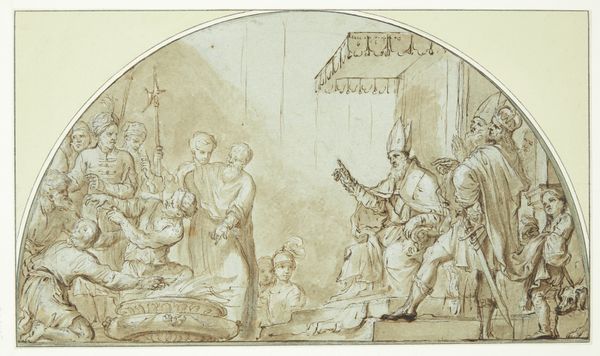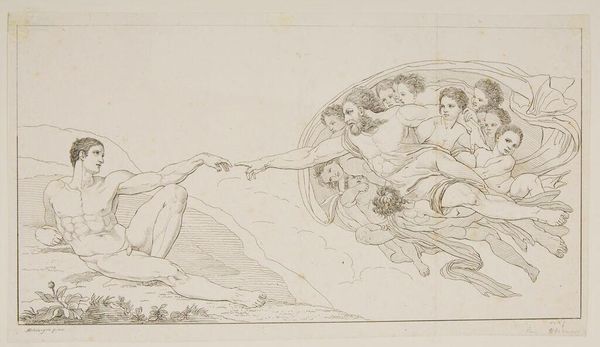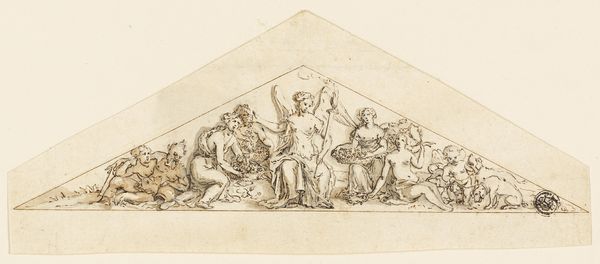
drawing, ink
#
drawing
#
neoclacissism
#
narrative-art
#
pencil sketch
#
greek-and-roman-art
#
figuration
#
ink
#
sketch
#
human
#
line
#
history-painting
#
storyboard and sketchbook work
#
academic-art
Copyright: Public domain
Editor: Here we have John Flaxman's "Illustration to the Iliad" from 1795, created using ink. The minimalist aesthetic and clean lines really strike me. How do you interpret this work through its visual language? Curator: The reduction of form to pure line is paramount here. Observe how Flaxman employs this linear vocabulary to delineate figures and space. The absence of tonal gradation directs our attention to the relationships between the forms themselves. Note the stark contrast between filled and unfilled spaces, creating a rhythmic composition. How does the line quality inform your understanding? Editor: It creates a sense of distance and almost…objectivity? As if we're observing an idea rather than an event. The sparseness seems intentional. Curator: Precisely. The simplified figures and lack of elaborate detail invite contemplation on the underlying structure of the narrative itself. Consider the use of horizontal and vertical lines to create a sense of balance and order. Notice how the figures are arranged in a frieze-like composition, echoing classical relief sculptures. Does that linear clarity draw you into the emotional states portrayed? Editor: To some degree, although the restrained emotion emphasizes a sense of universality. Seeing it this way shows how focusing on lines really communicates the intellectual element and classical theme. Curator: Agreed. By focusing on the essential elements of line and composition, Flaxman directs our gaze towards the formal construction of meaning itself. What strikes me is how contemporary Flaxman's concept of minimalism looks today, as the artist seeks to explore the archetypes found in Homer's Iliad through the intrinsic language of art.
Comments
No comments
Be the first to comment and join the conversation on the ultimate creative platform.
